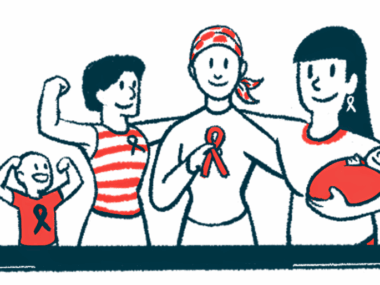What It Means to Own My Hemophilia
Written by |

My nephew does not like needles. Actually, “hate” is probably a better word. He hates needles. This is not ideal, given that he has hemophilia.
Recently, I was helping him practice IV infusions on a makeshift “arm” I created. As we talked, I told him, “You need to own hemophilia. You can’t let it own you.” As the words came out of my mouth, they made me think.
How many people own their hemophilia? What does that mean?
When I made that statement to my nephew, I meant that he needed to embrace and take control of his condition. Worrying about needles places him in a more vulnerable position.
Many women struggle to own their hemophilia
I see this issue among women in my community. Some of these women are asymptomatic carriers, meaning they carry the gene and can pass on hemophilia but are not affected themselves. Other women show symptoms of hemophilia and may or may not have received a diagnosis. Many struggle to obtain a diagnosis they arguably should have based on their factor levels. (According to the U.S. Centers for Disease Control and Prevention, people with factor levels below 50% have hemophilia.)
When women go to the emergency room, they often struggle to obtain care. Research shows that women’s issues and pain are more likely to be dismissed by medical professionals. Women with hemophilia are no exception. When a woman goes to the ER with potential bleeding issues, the quest for treatment can be even more challenging.
Some women seeking treatment may be turned away, as many people expect them to bleed. Women who have had periods for weeks on end may not find validation and assistance. Some professionals may assume that any menstrual bleeding is normal, and the woman is simply weak or complaining.
I know women who have had to photograph their used pads, toilets full of blood, and stained clothing and sheets in order to have their excessive menstrual bleeding issues acknowledged.
Women are taught to minimize and ignore health issues
Sometimes women minimize their own symptoms, as they are too often taught to do. I know women who believe horrendous bleeding is normal and thus will not seek help. They end up suffering needlessly. It is not normal to have to change pads every 30 minutes, experience flooding every time you stand up, and bleed for days on end.
Pain can be a signal that something is not right physically. Similar to the bleeding, some women have been taught to minimize or ignore their pain. As a child, my ankles hurt every time I ran. It was so painful. I was called lazy, teased, and told the pain was in my head. I was taught to ignore the pain and push through.
To this day, I have very high pain tolerance and often miss injuries because I ignore the pain and persevere. This has, at times, exacerbated issues, including worsening bleeds that needed treatment. I often question whether my pain is real, wonder if it is “really that bad,” and delay treatment until the injury or bleed is unbearable.
I am still learning how to identify issues early, as immediate treatment speeds up healing and minimizes the long-term damage that untreated bleeds can cause. This is part of owning hemophilia. I am reaching out to my care provider more and learning how to quickly get on top of bleeding issues.
When I need assistance, I seek it out. Sometimes this means educating my local doctors about hemophilia in general or explaining how I can have hemophilia as a woman. At times, I may need to ask staff at my hemophilia treatment center (HTC) to call and guide my local doctors or ER staff.
For me, owning my hemophilia by educating myself and working with my HTC staff to develop a solid treatment plan is a game changer. I am more active, have less pain, and most importantly, experience fewer bleeds.
Living with hemophilia is a continual learning experience. Being proactive and challenging oneself to own hemophilia is critical. When I own my condition, I feel empowered. I understand it is something I can manage, allowing me to live an active and fulfilling life.
***
Note: Hemophilia News Today is strictly a news and information website about the disease. It does not provide medical advice, diagnosis, or treatment. This content is not intended to be a substitute for professional medical advice, diagnosis, or treatment. Always seek the advice of your physician or another qualified health provider with any questions you may have regarding a medical condition. Never disregard professional medical advice or delay in seeking it because of something you have read on this website. The opinions expressed in this column are not those of Hemophilia News Today or its parent company, Bionews, and are intended to spark discussion about issues pertaining to hemophilia.



Suzi Cannon
Such great information. Keep spreading the word!